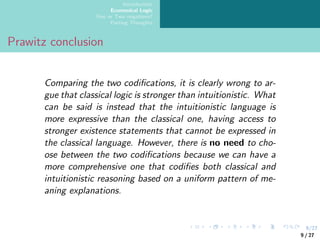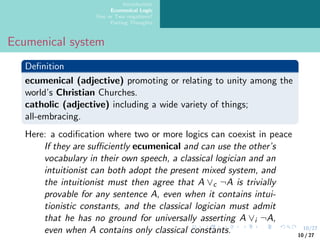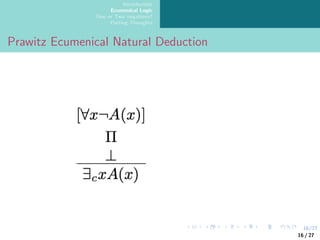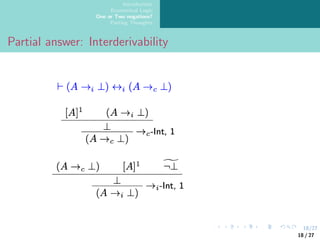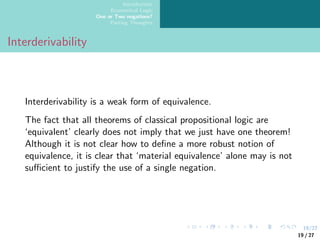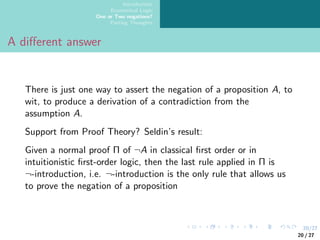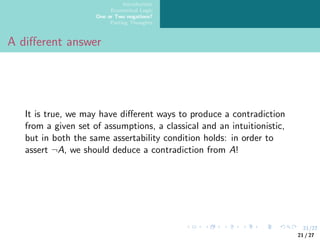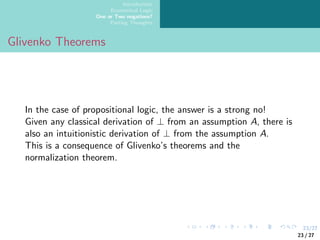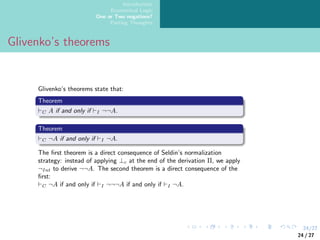This document discusses the concept of an ecumenical logic system that allows both classical and intuitionistic reasoning to coexist. It summarizes Dag Prawitz's approach to defining such a system, which uses different symbols for logical constants that have different meanings classically versus intuitionistically. However, the document raises the question of why Prawitz's system only includes one symbol for negation rather than separate classical and intuitionistic negation symbols. Possible answers discussed include the interderivability of the two notions of negation and the view that negation asserts a contradiction from assuming the negated proposition. The document does not conclude there is a definitive answer and suggests this as an interesting open problem area.

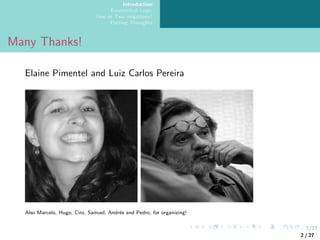
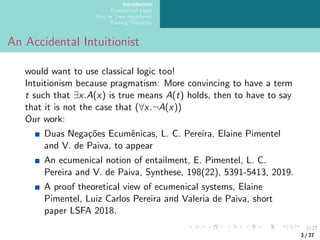
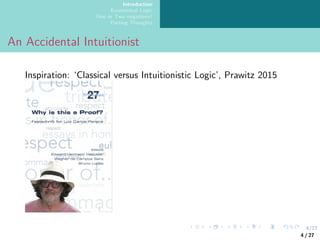
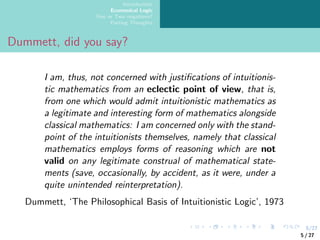
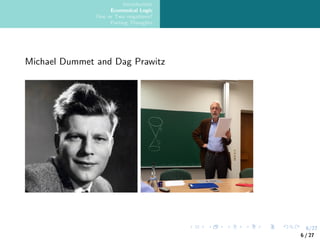
![7/27
Introduction
Ecumenical Logic
One or Two negations?
Parting Thoughts
Prawitz
My interest in logic is first of all an interest in deductive
reasoning. I see so-called classical first order predicate
logic as an attempted codification of inferences occurring
in actual deductive practice.[...]
Only if it can be shown that the classical ideas about mea-
ning are mistaken and that no intelligible meaning can be
attached to the logical constants agreeing with the classi-
cal use of them, is the intuitionistic codification of mathe-
matical reasoning of interest, according to Dummett.
[Dummett] dismisses an ecletic attitute that finds an in-
terest in both the classical and the intuitionistic codifica-
tion.
Prawitz, ‘Classical versus Intuitionistic Logic’ 2015
7 / 27](https://image.slidesharecdn.com/brasilcolombiaslides-211219060301/85/Negation-in-the-Ecumenical-System-7-320.jpg)
![8/27
Introduction
Ecumenical Logic
One or Two negations?
Parting Thoughts
Prawitz on classical constants
Gentzen’s introduction rules are of course accepted also in
classical reasoning, but some of them can clearly not serve
as explanations of meaning.
[...]an existential sentence ∃xA(x) may be rightly asserted
classically without knowing how to find a proof of some
instance A(t). Hence, Gentzen’s introduction rule for the
existential quantifier, which allows one to infer ∃xA(x)
from A(t), does not determine what is to count classi-
cally as a canonical proof of ∃xA(x) and therefore does
not either determine the classical meaning of the existen-
tial quantifier.
Prawitz, ‘Classical versus Intuitionistic Logic’ 2015
8 / 27](https://image.slidesharecdn.com/brasilcolombiaslides-211219060301/85/Negation-in-the-Ecumenical-System-8-320.jpg)
